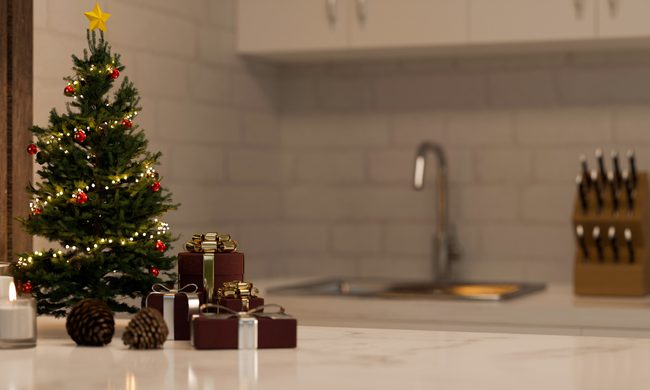Most people aren’t a fan of bugs in the house. (Or bugs anywhere, really.) But we can all agree that no one is a fan of bugs in their fruit. We get it — sometimes you just don’t get to that last peach in the bowl before it starts to rot. Unfortunately, rotten fruit invites fruit flies to take over your kitchen.
Fruit flies aren’t an inescapable problem if you have kiwis and melons sitting out. Though they can run amok in your kitchen if you don’t eat your fruit fast enough, there is a way to get rid of fruit flies that can be pretty enjoyable. Grab your wine opener and let’s go over how to prevent fruit flies from ruining your fruit while you relax with a glass of pinot.

Fruit fly basics
They don’t just come for the fruit
While they are called fruit flies, they aren’t just there for a hearty meal. The flies actually lay their eggs in the fruit. A single fruit fly can lay up to 500 eggs at once. Those are 500 reasons to make sure you take precautions to ensure they don’t hatch in your house.
They thrive on damp surfaces and areas
So, how did those pesky winged creatures get in your house anyway? They are attracted to the sugar in the fruit, seeking out high fructose from fermenting food. They can find this anywhere in the house including the drains, trash, and, obviously, your fruit bowl.
How to keep your fruit fly-free
There are a few things you can do to make sure you are the only one who is touching your fruit.
Clean your surfaces
Start with a good scrubbing, being sure to clean counters, sinks, and any nooks that might catch sticky or wet substances. Make sure to pour cleaner down all the drains.
Toss the old stuff
Throw away any old vegetables or fruits as soon as they’re no longer fresh. They will smell up the room and invite all kinds of bugs to eat and nest within them.
Leave out a trap
Leave out a mixture of apple cider vinegar, Dawn dish soap, and a little sugar. The flies will be attracted to the sugar and the soap will suck them in. Dispose of the mixture quickly.

Where the wine comes in
All of those tricks can rid the space of fruit flies once they are already in your house. But to keep things free and clear once your oranges hit your favorite bowl, grab your wine.
Why corks
Humidity is no match for natural cork. It absorbs moisture from the air around the fruit and slows down the ripening process. Your fruit will last longer, and you can keep the flies from laying their eggs in your bananas.
Use natural corks
Does it matter what kind of cork you use? Yes! You can’t use those easy-to-open twist caps. While the $3 wine keeps you on budget, the fake corks won’t help you out. Plastic won’t absorb the moisture; only natural cork will.
How to use the cork
You need to do a little more than finish your bottle and toss the cork in the bowl.
- Ensure the cork is thoroughly dried out.
- Cut the cork in half.
- Place a half in either side of the bowl.
- Add additional corks as needed.

Cork tips
Red or white?
Does the wine color affect the usefulness of the cork? No. As long as it’s a natural cork, you’ll be just fine. A non-sweet wine is best because it’s less likely to attract hungry flies, but it isn’t a necessity.
Cut off any sediment
If the cork has any dregs or little crystals on it, cut them off. That can attract the flies rather than repel them.
While you wait for your apples and bananas to reach peak ripeness, you are also creating a hospitable environment for fruit flies. Never again should you bite into a peach and find a little surprise.
If you were looking for a reason to buy an extra bottle of red (other than for the health benefits) you’ve found it. You can’t pass up a trick of how to get rid of fruit flies that also doubles as a reason to grab another bottle of wine. Try it and see how much longer your fruit will last. Pour that glass and save those oranges.



